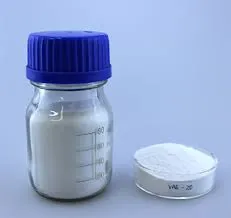
نوامبر . 15, 2024 09:39 Back to list
mortar bonding additive
Exploring the Benefits of Mortar Bonding Additives
Mortar is a fundamental component in construction, serving as a binding agent for brick, stone, and concrete. However, achieving optimal adhesion and durability can be challenging, especially in varying environmental conditions. This is where mortar bonding additives come into play, enhancing the performance and longevity of mortar applications.
Mortar bonding additives, often formulated from polymeric materials, are incorporated into traditional mortar mixes to improve their properties. These additives significantly enhance the bond strength between the mortar and substrate, allowing for superior adhesion and reducing the risk of delamination over time. The use of such additives is particularly beneficial in diverse climatic conditions, where temperature fluctuations and moisture can affect the integrity of the mortar.
One of the primary advantages of using bonding additives is their ability to improve the workability of mortar. By enhancing the mixture's consistency, these additives allow for easier application, smooth finishing, and greater control during construction processes. This is especially crucial in projects requiring precision, as it allows craftsmen to achieve a higher-quality finish and reduces the likelihood of defects in the final product.
mortar bonding additive

Furthermore, mortar bonding additives can enhance the water resistance of the mortar
. This is particularly advantageous in environments exposed to heavy rains or moisture, as the additives help prevent water penetration, thereby reducing the risk of mold and degradation. Improved water resistance also extends the life of the masonry structure, saving on future repair costs and maintenance.Another significant benefit of bonding additives is their ability to increase flexibility. Traditional mortar can become brittle over time, making it prone to cracking under stress or movement. By incorporating bonding additives, the mortar retains a degree of flexibility that allows it to accommodate slight shifts in the structure without compromising the bond. This is increasingly important in regions prone to earthquakes or other forms of structural stress.
In addition to these mechanical improvements, mortar bonding additives can also contribute to enhanced sustainability. Many eco-friendly additives are now available, which not only improve performance but also reduce the carbon footprint of construction projects. By choosing sustainable options, builders can meet environmental standards while delivering high-quality work.
In conclusion, the addition of mortar bonding additives is a game-changer in the construction industry. These additives enhance adhesive strength, workability, water resistance, and flexibility, providing substantial benefits that contribute to the overall quality and durability of masonry structures. As the demand for sustainable building practices grows, the continued innovation and application of these additives will play a crucial role in the future of construction, ensuring that structures stand the test of time while meeting modern standards of safety and sustainability. Whether for residential, commercial, or industrial projects, incorporating mortar bonding additives is a wise choice for any builder aiming for excellence in their work.
-
Why HPMC is a Key Additive in Wall Putty Formulations
NewsAug.05,2025
-
Redispersible Powder in Decorative Renders: Function Meets Finish
NewsAug.05,2025
-
Redispersible Powder for Interior Wall Putty: Smooth Results Every Time
NewsAug.05,2025
-
HPMC’s Water Retention Capacity in Dry Mortar Applications
NewsAug.05,2025
-
HPMC Factory Contributions to Liquid Detergents
NewsAug.05,2025
-
How HPMC Factory Products Change Detergent Textures
NewsAug.05,2025







